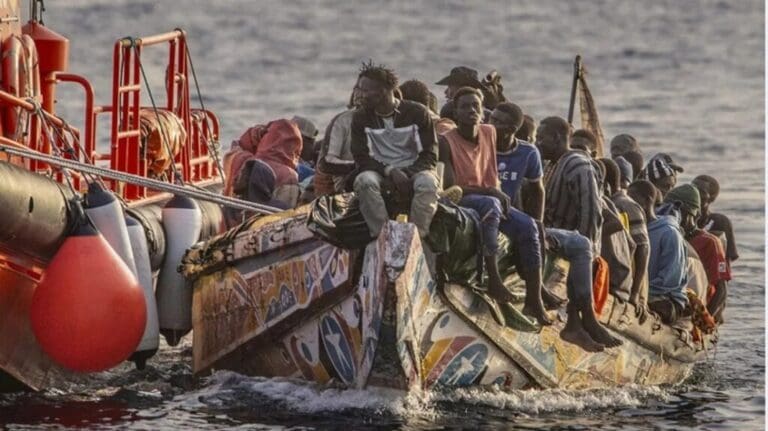In 2024, the route from Mauritania to the Canary Islands saw a staggering 6,829 deaths connected to 110 shipwrecks. This alarming statistic positions West Africa as the epicenter of a profound humanitarian crisis, underscoring the daily tragedies faced by thousands of migrants fleeing desperate conditions.
The recorded 6,829 deaths in 2024 represent an unprecedented toll. Of the 110 shipwrecks, 79 boats went missing, leaving families without answers or recourse. According to the data, this route has become the deadliest on the African continent, outpacing traditional routes like those in the central or eastern Mediterranean.
These distressing figures are part of a larger crisis unfolding across Africa, where over 10,000 migrants have perished while attempting to reach Europe via sea routes this year. Mauritania has emerged as a primary departure point for these crossings, accounting for nearly 70 percent of recorded departures and highlighting its central role in this migration tragedy.
Most of the migrants originate from the Sahel and West Africa, driven by a combination of factors that compel them to take extreme risks. Armed conflicts, pervasive poverty, and the effects of climate change—such as desertification and resource scarcity—are contributing to this mass exodus. In recent years, there has been a noticeable increase in the number of women and children among those migrating, many of whom travel alone, thereby facing heightened dangers.
The situation in Mauritania is complicated further, as migrants in transit often endure inhumane conditions that include slavery-like practices and systemic violence, prompting many to seek perilous departures. The challenges continue at sea, where overcrowded and poorly equipped makeshift boats become death traps against the powerful waves of the Atlantic Ocean.
Impact of restrictive migration policies
The European Union’s increasingly stringent migration policies are exacerbating this crisis. By tightening border controls and outsourcing migration management to African nations, Europe has effectively placed the onus on these countries to handle poorly organized or inadequate relief efforts. Rescue operations frequently face delays due to bureaucratic hurdles or a lack of political commitment, struggling to address the ongoing humanitarian emergency.
NGOs like Caminando Fronteras are raising alarms, advocating for improved international coordination and the establishment of legal and secure migration routes to prevent recurrent tragedies. Implementing solutions that respect human rights remains essential to reducing risks faced by already vulnerable populations.
While the 2024 statistics depict a dire situation, the challenges ahead are immense. African nations, often under economic and political strain, are grappling with managing the migration phenomenon. Meanwhile, European countries, preoccupied with border security, are slow to propose comprehensive and inclusive solutions.
MK/ac/Sf/fss/abj/APA


